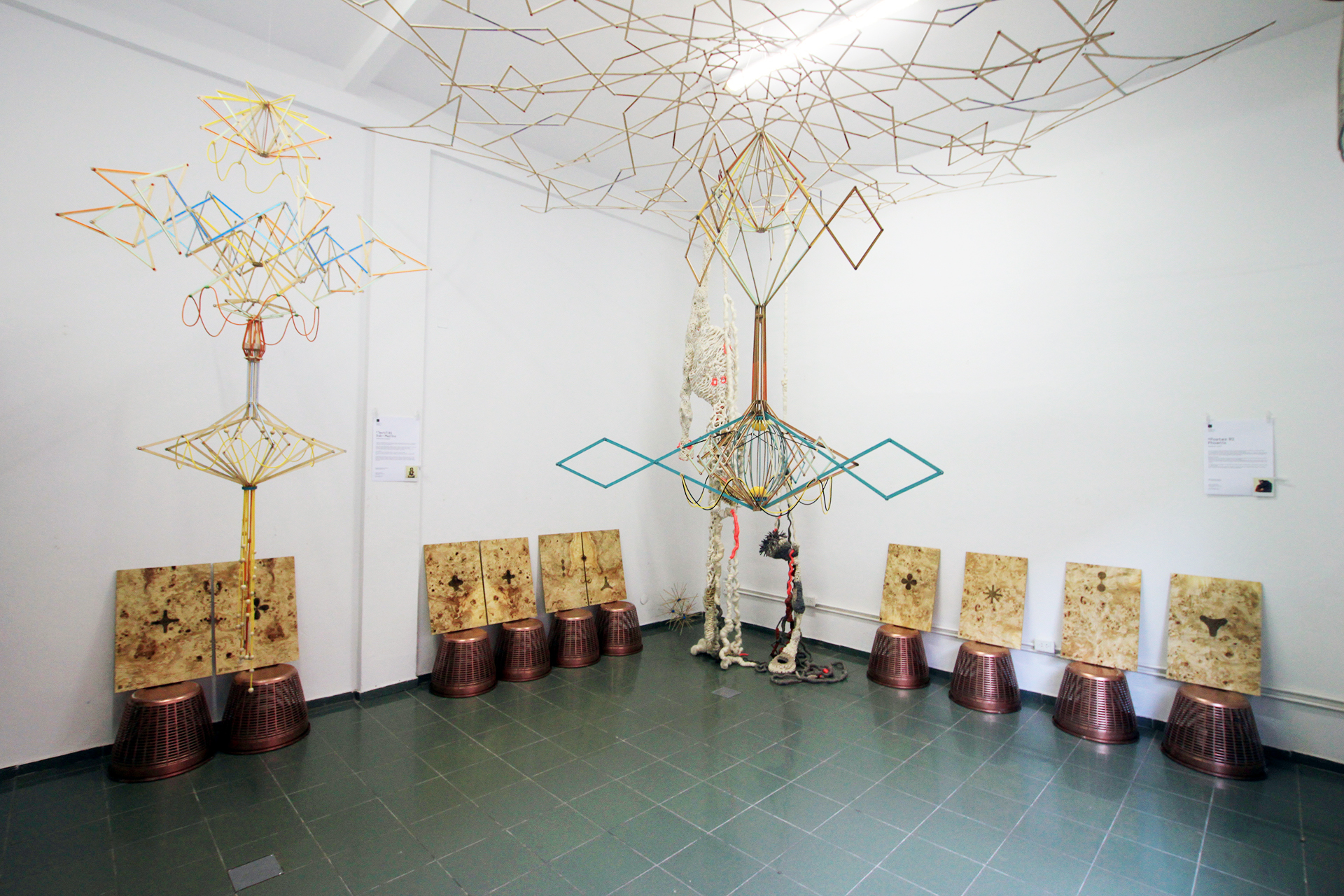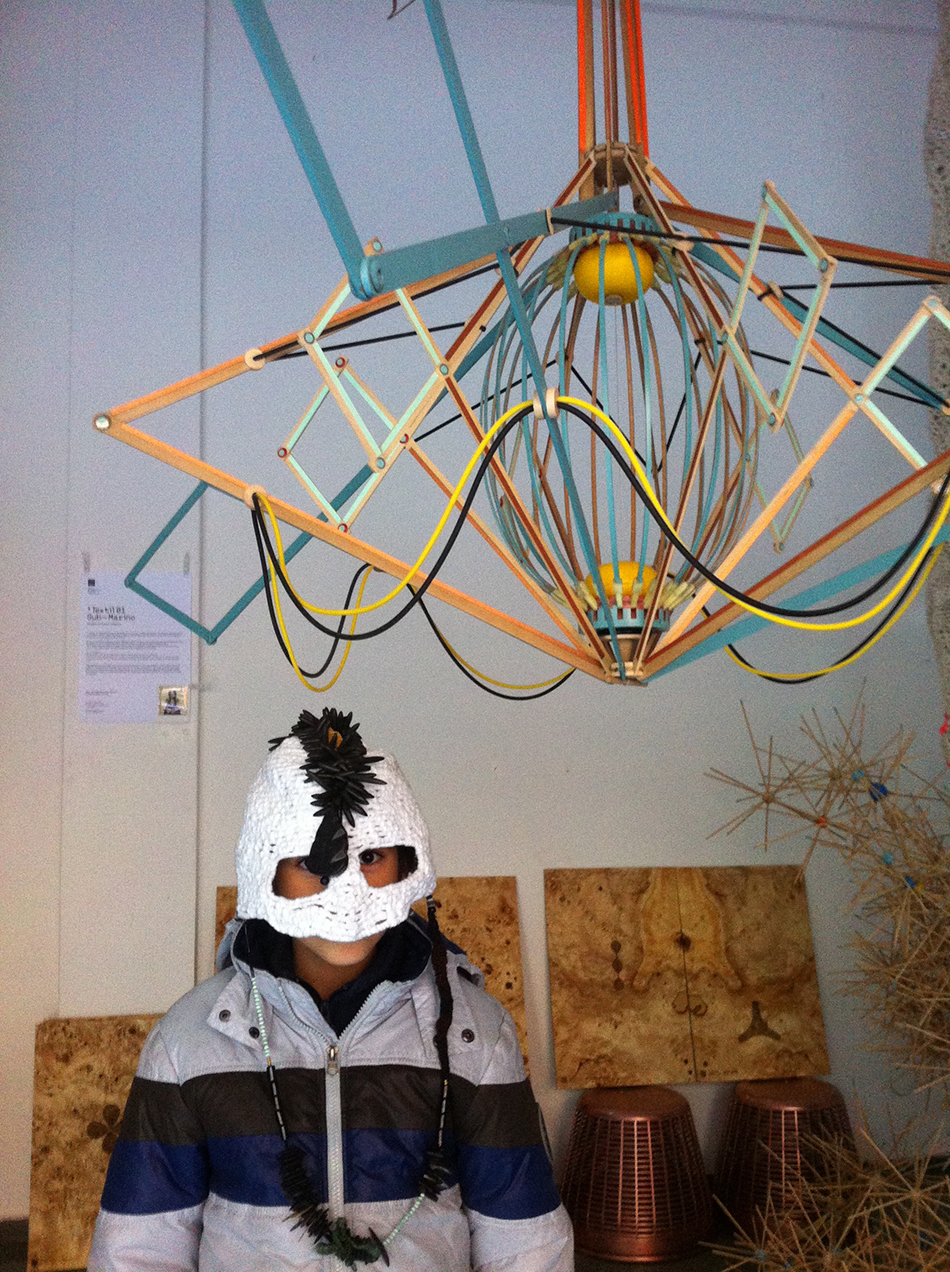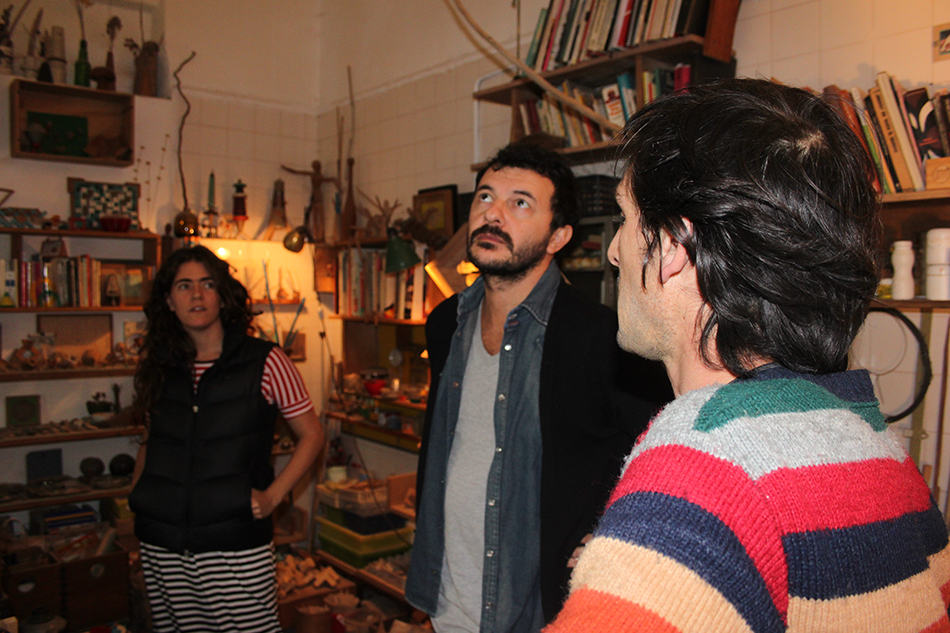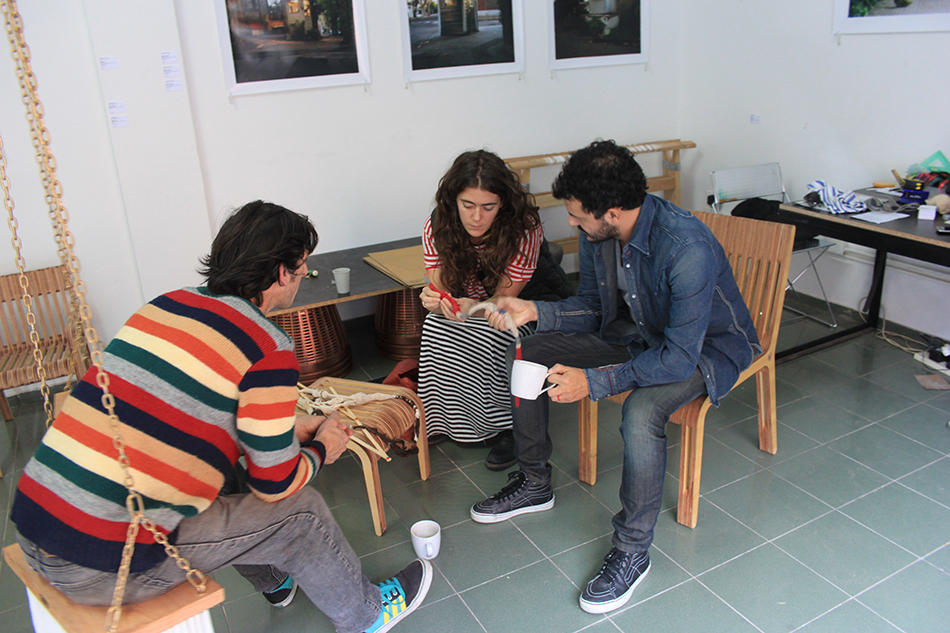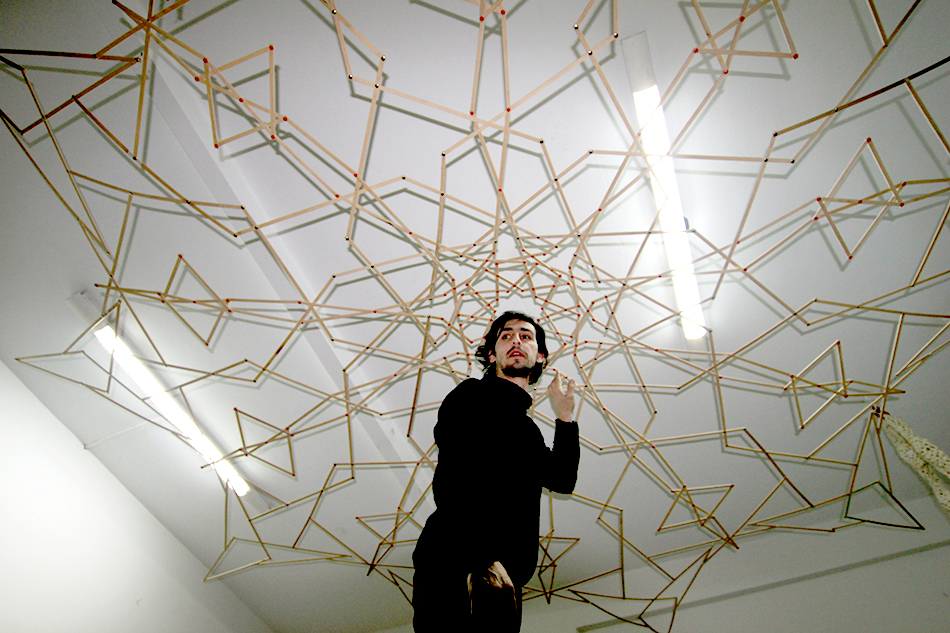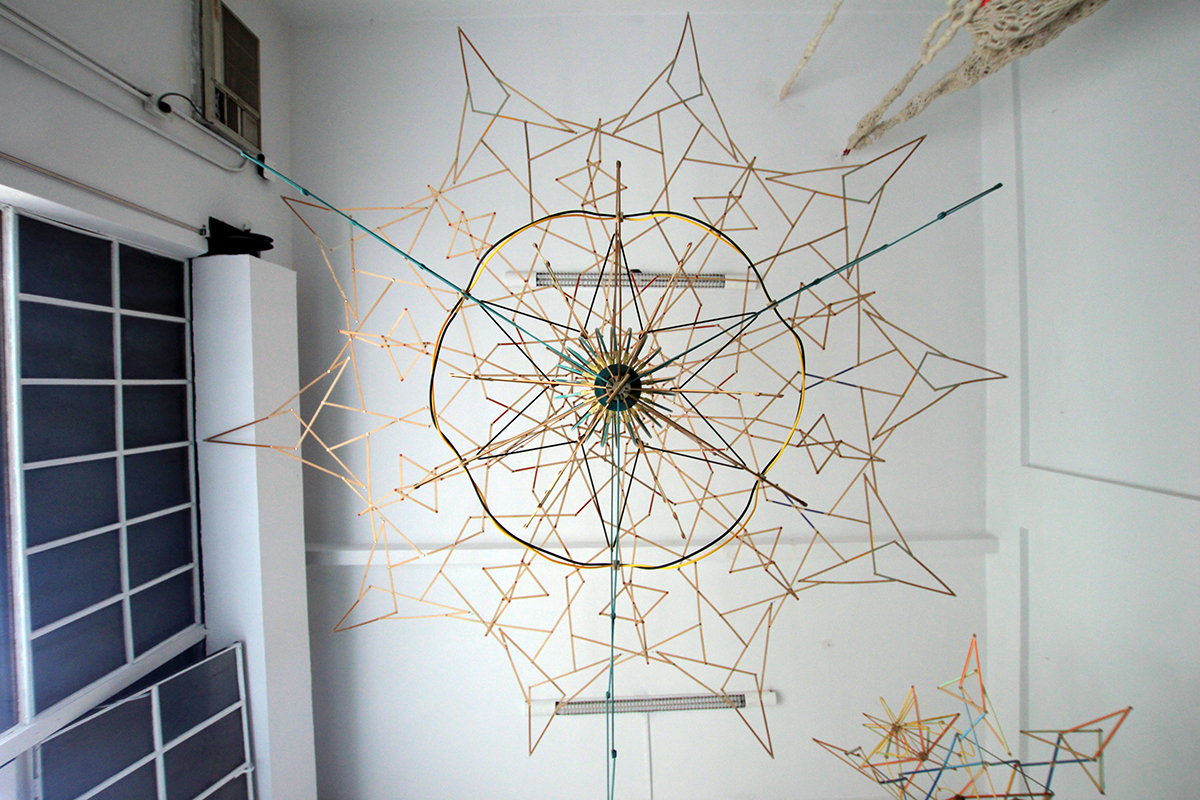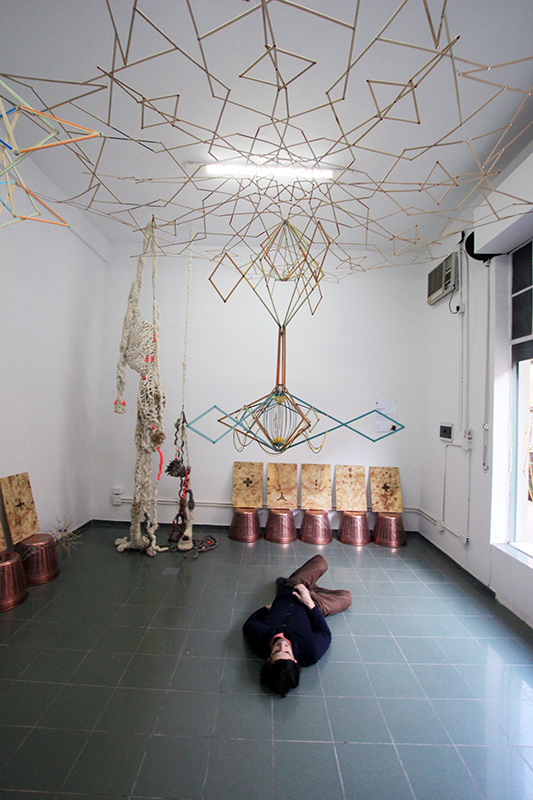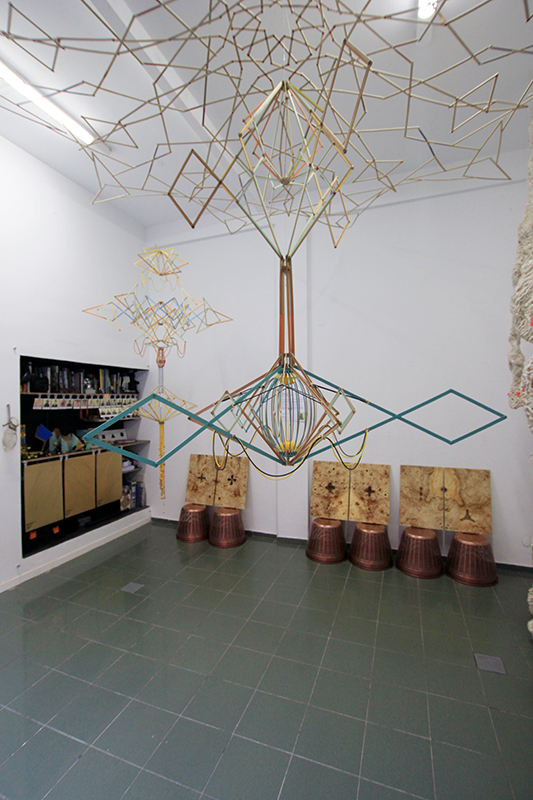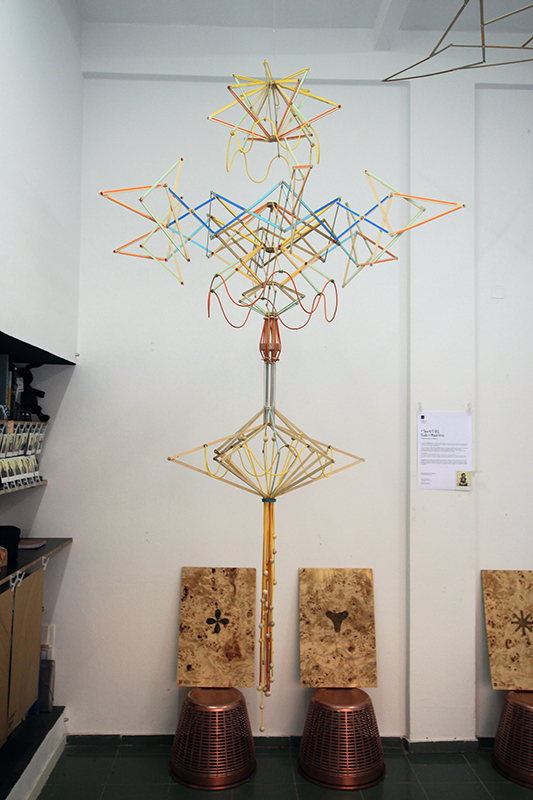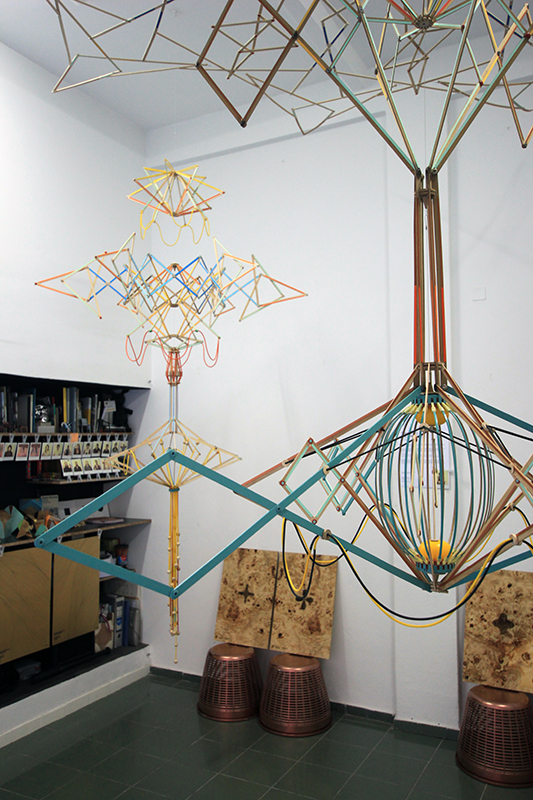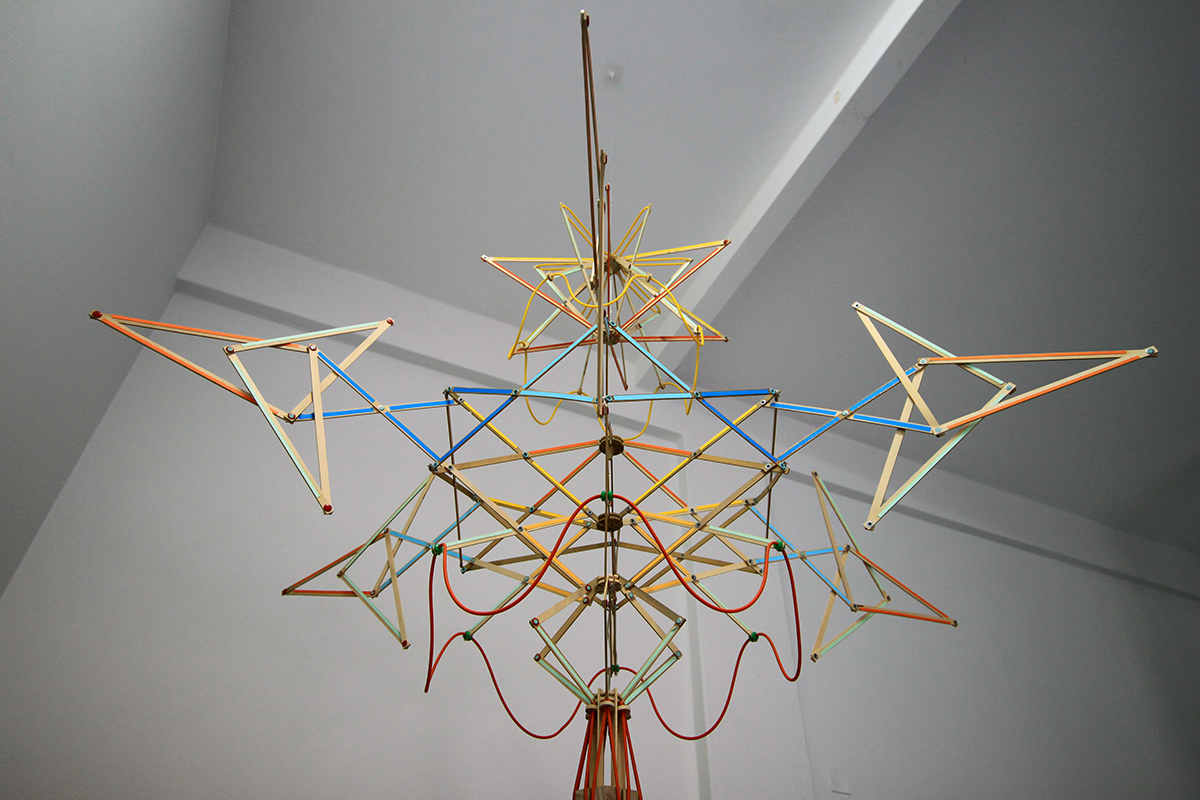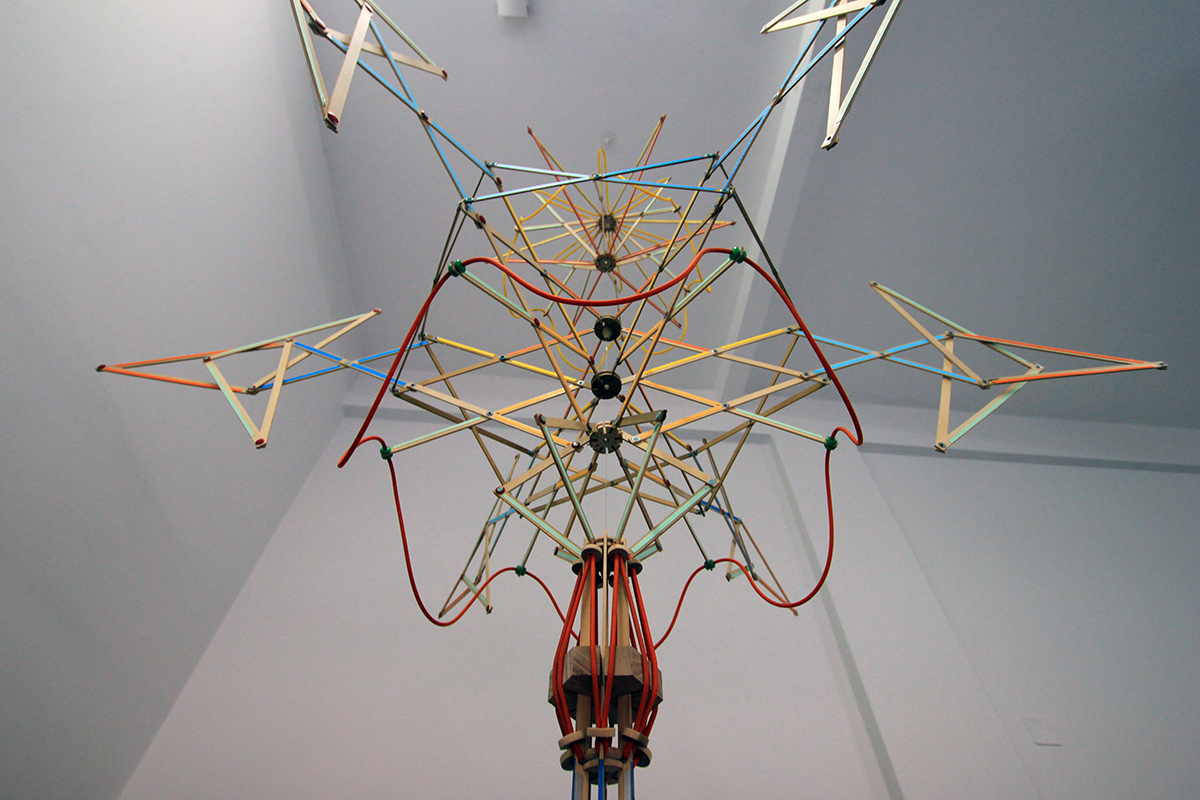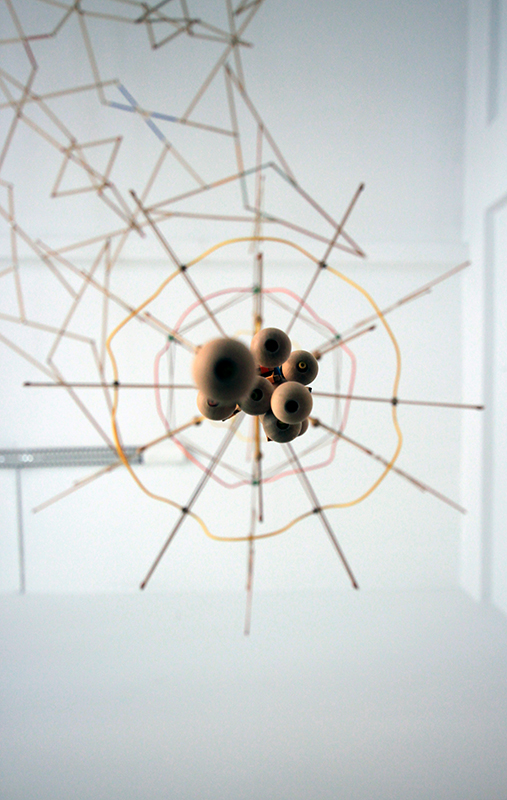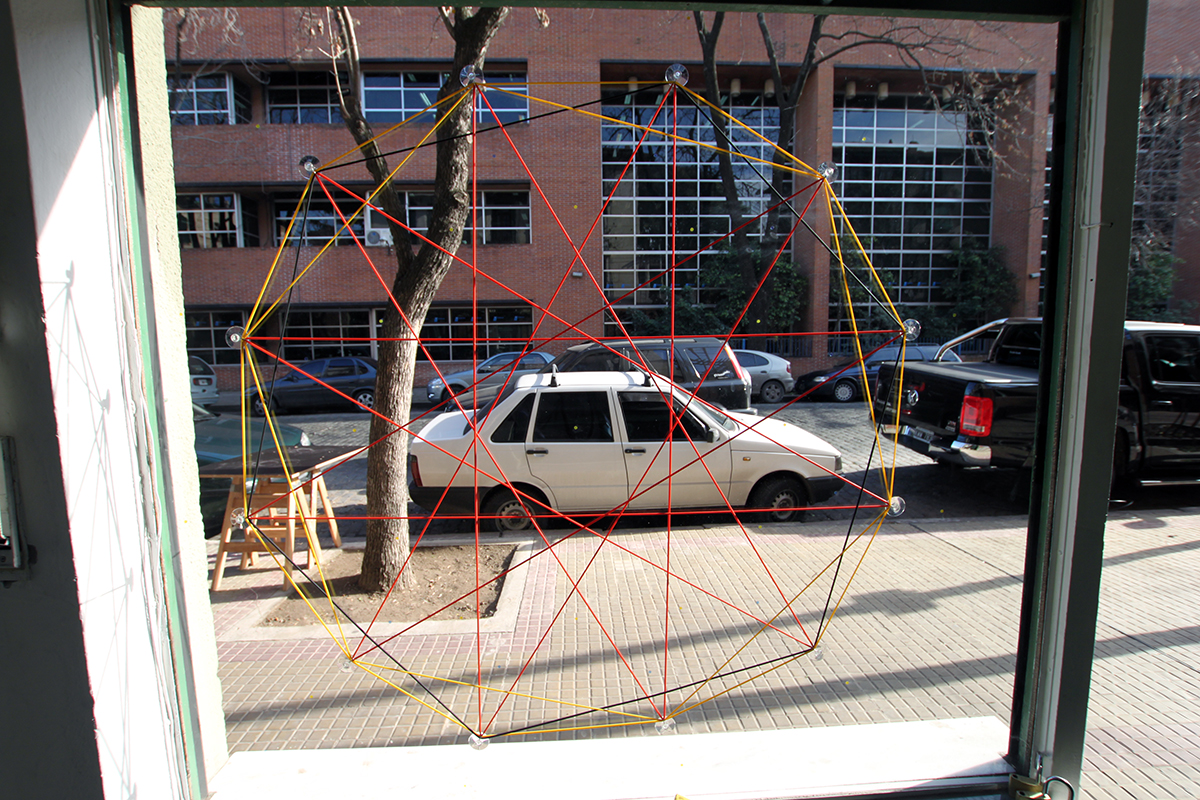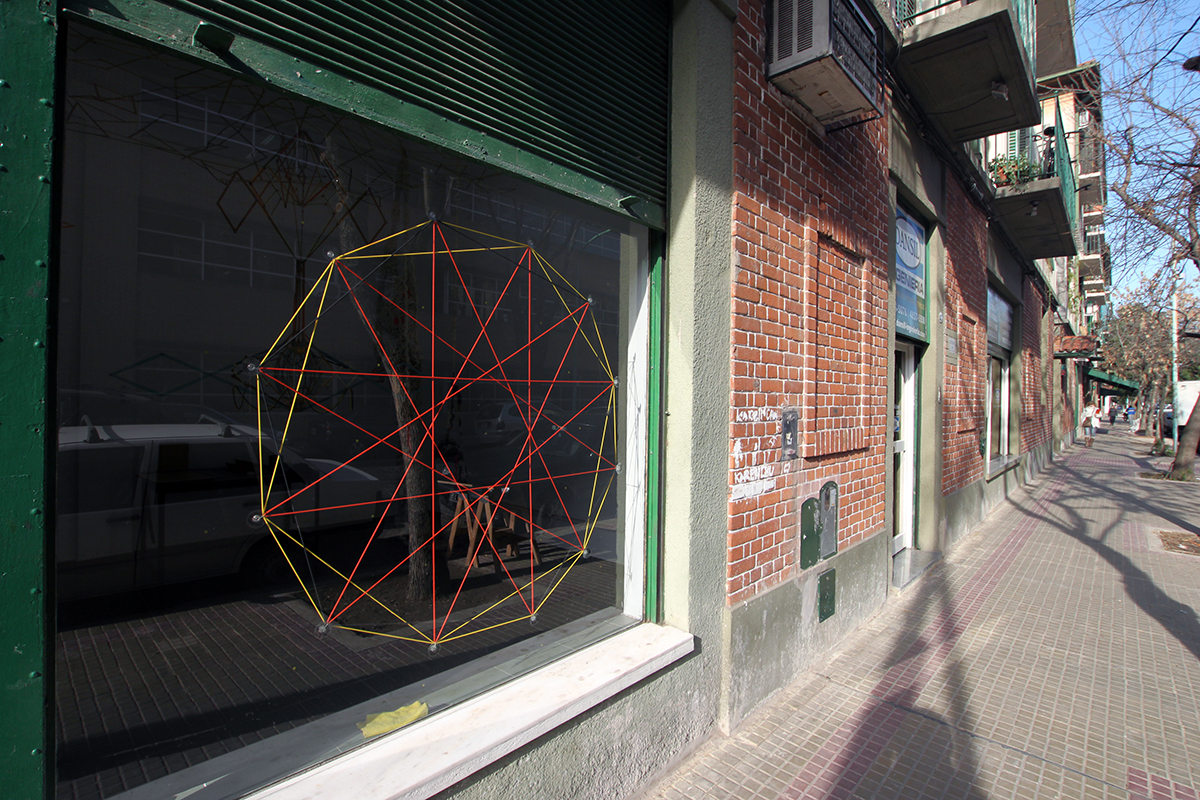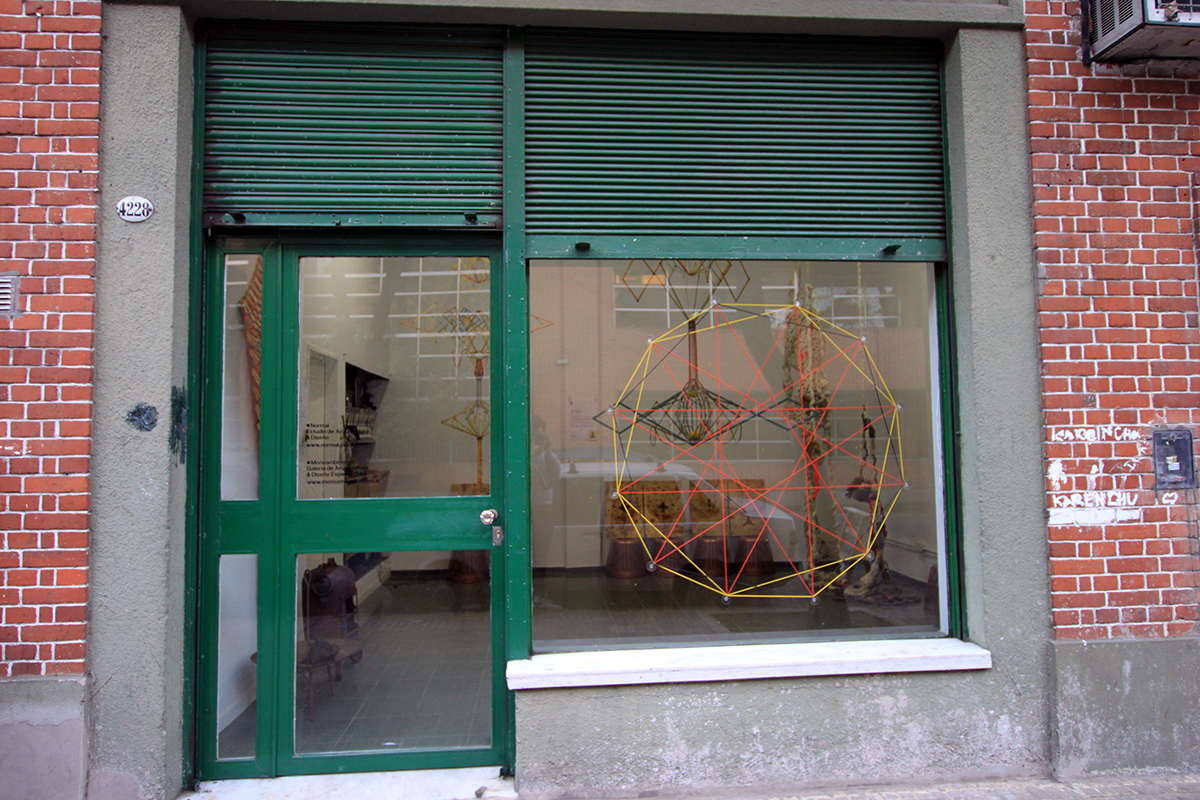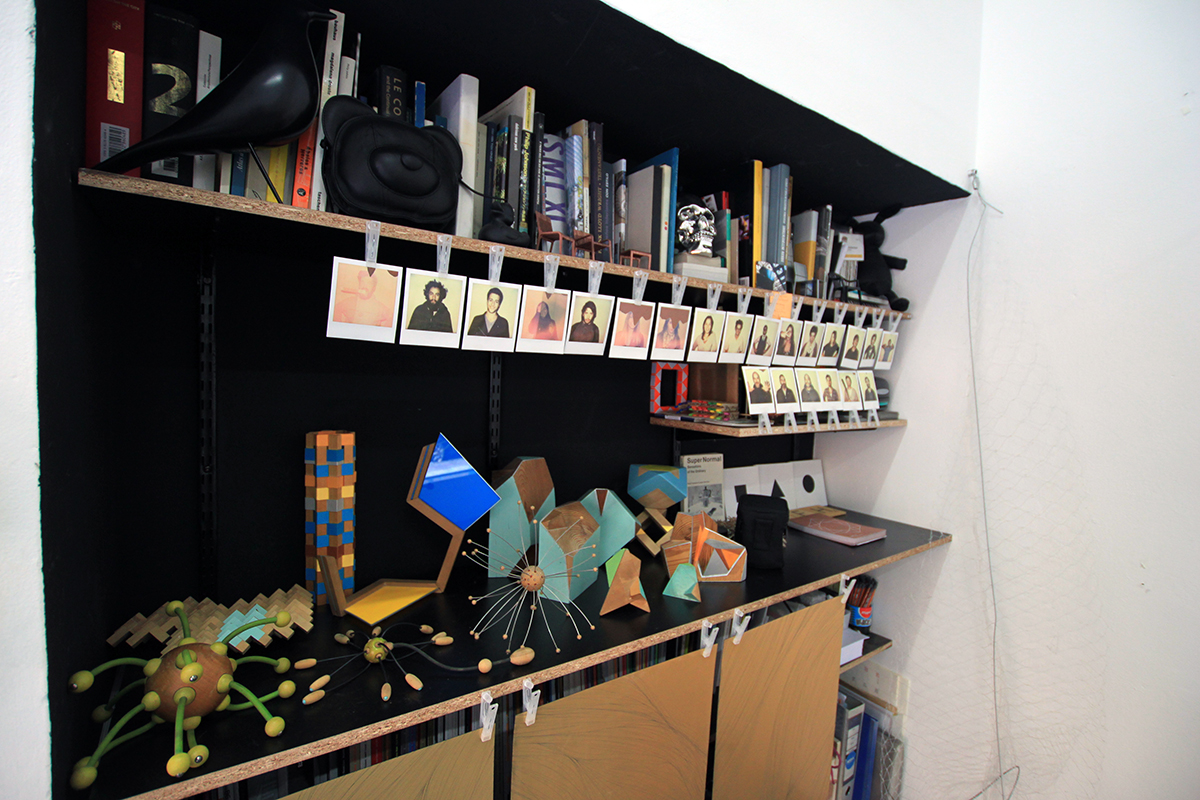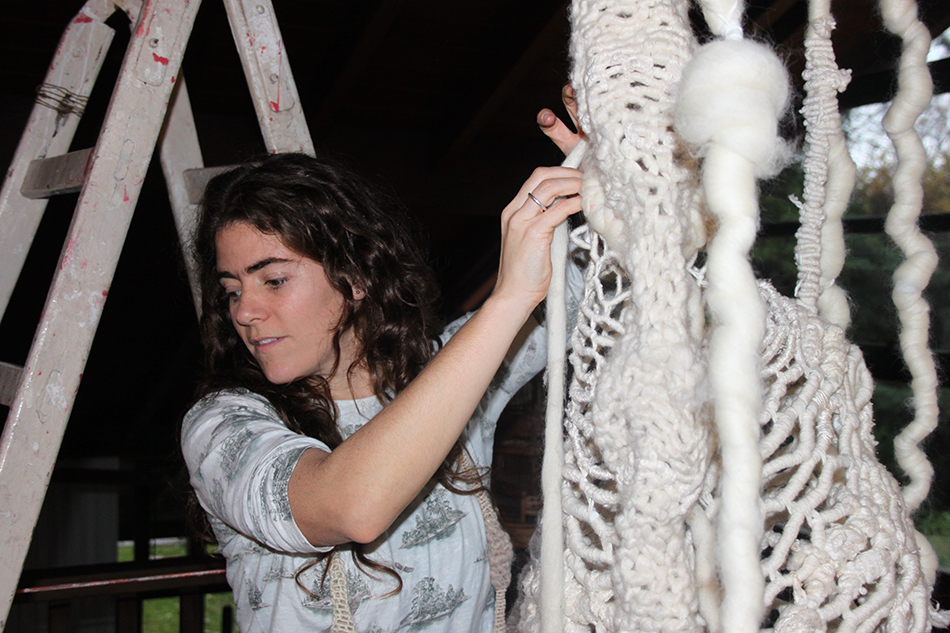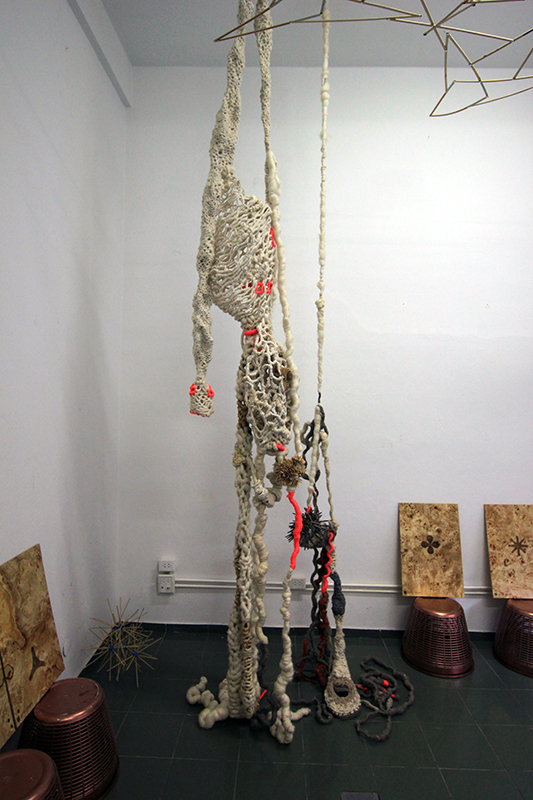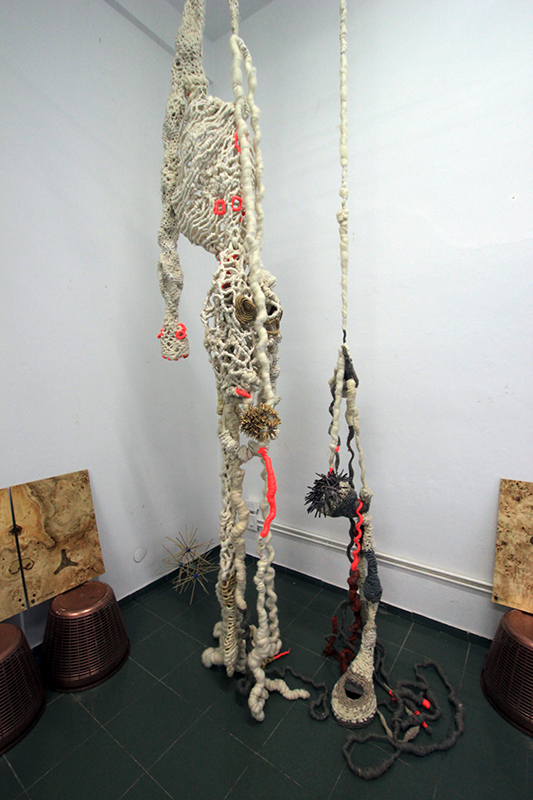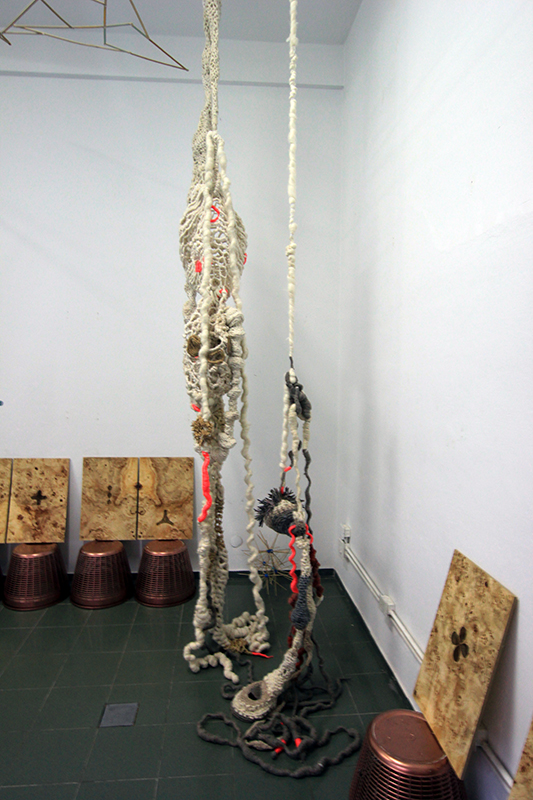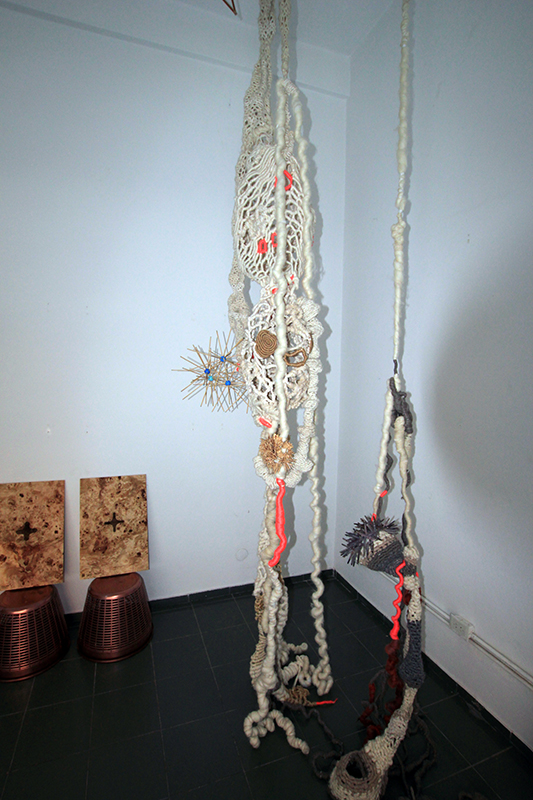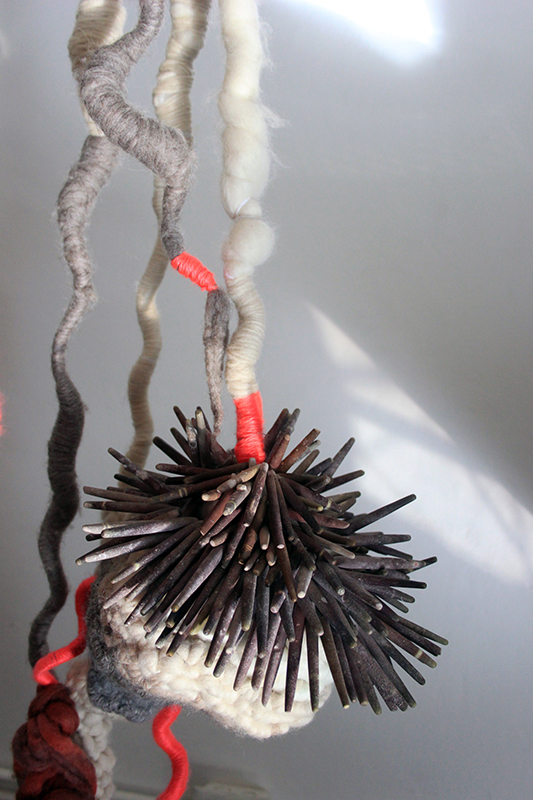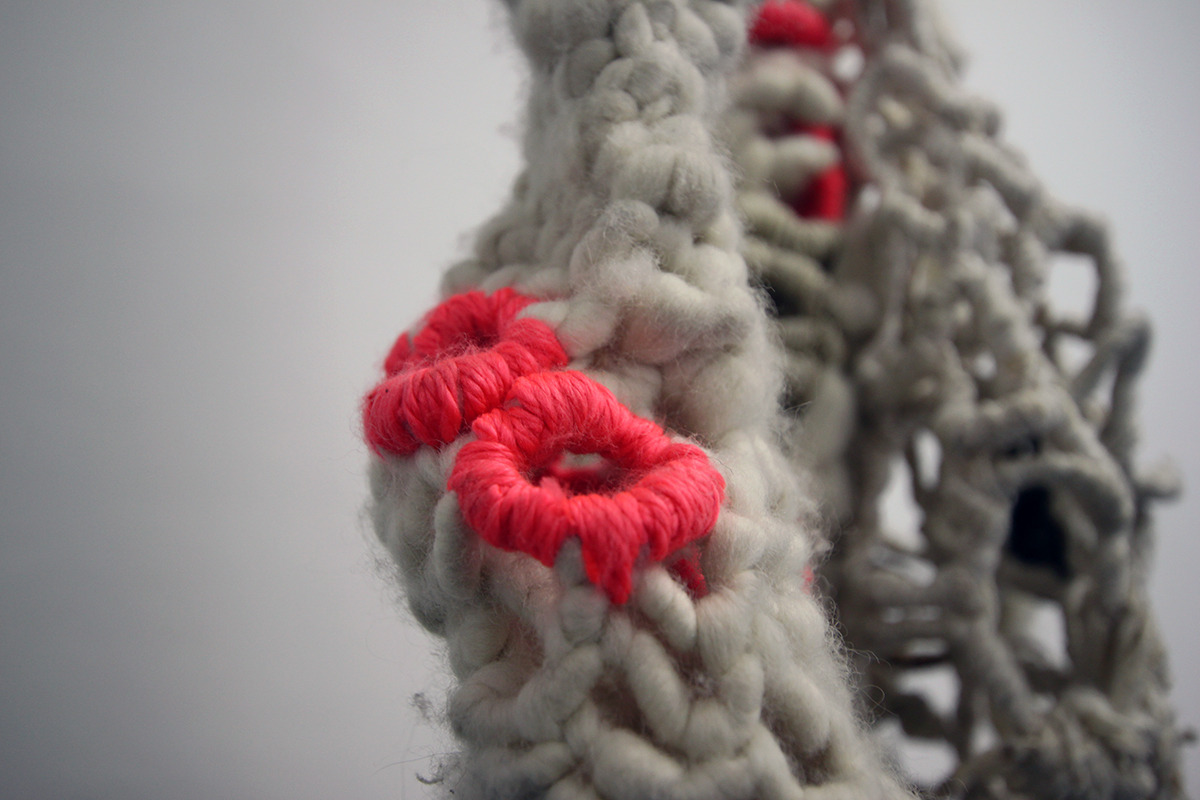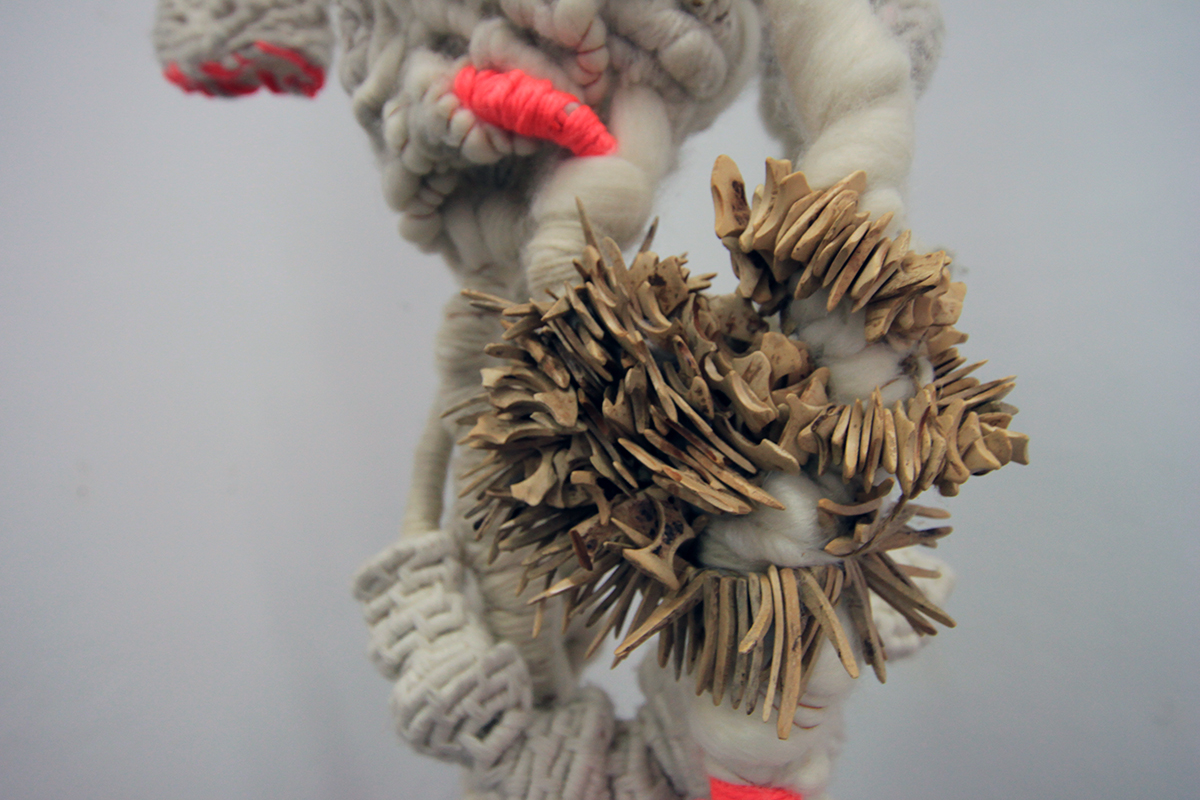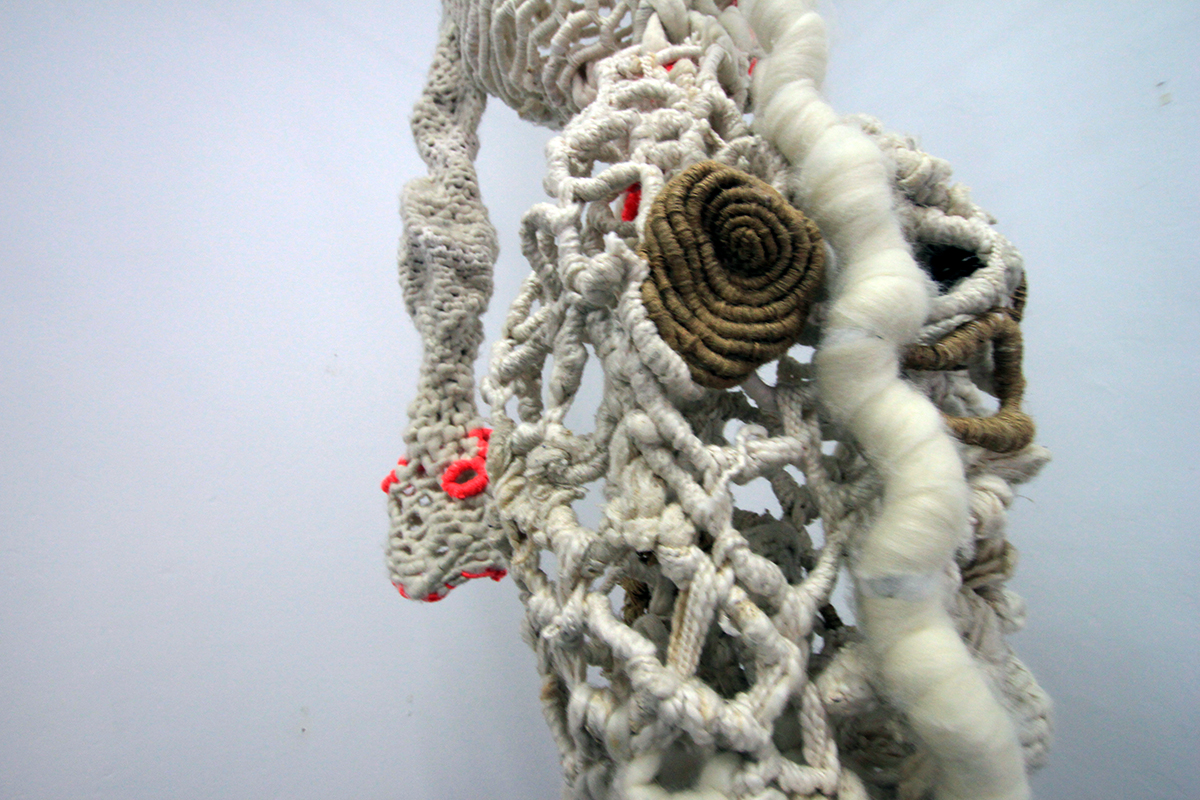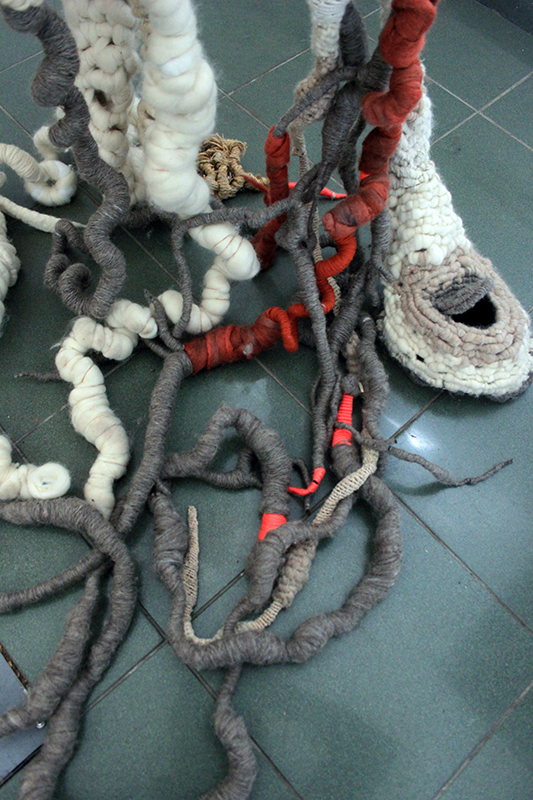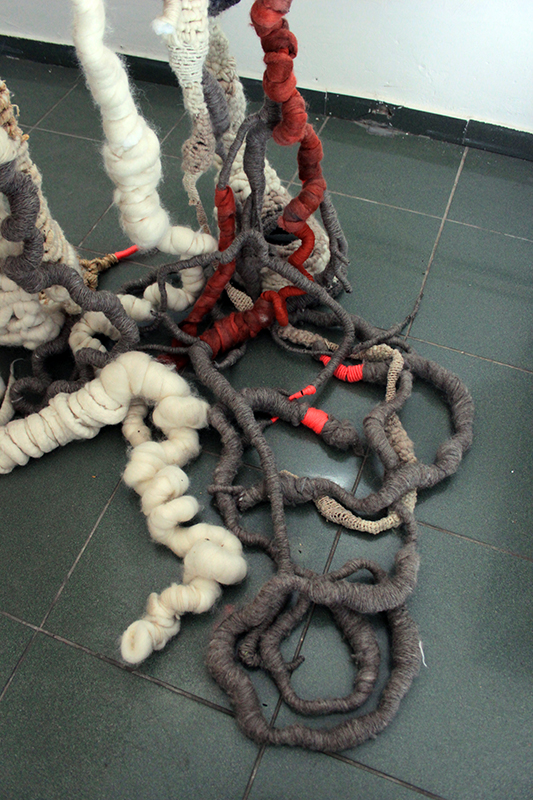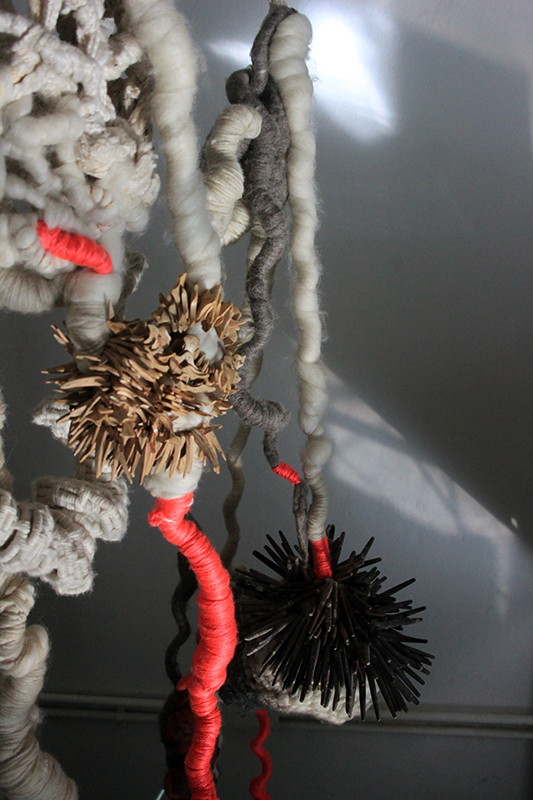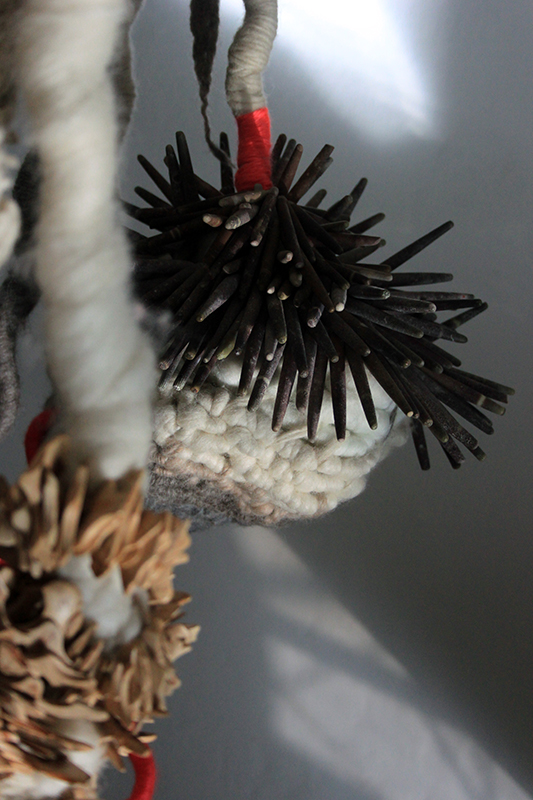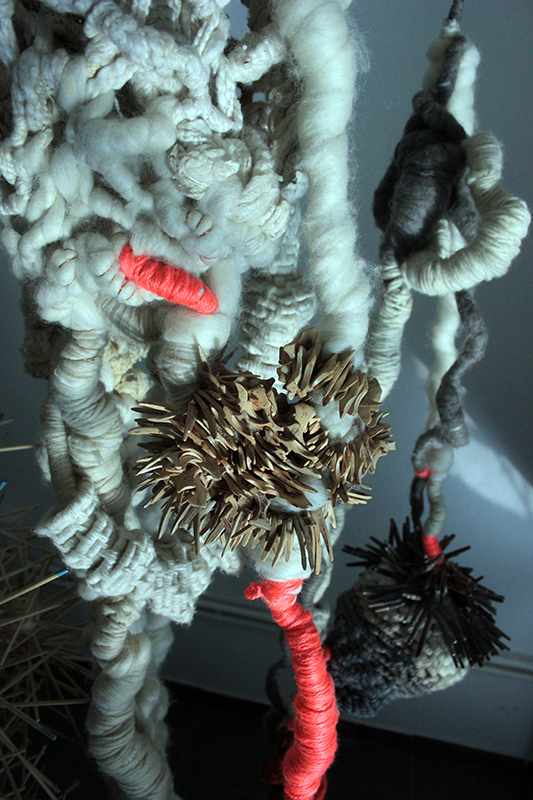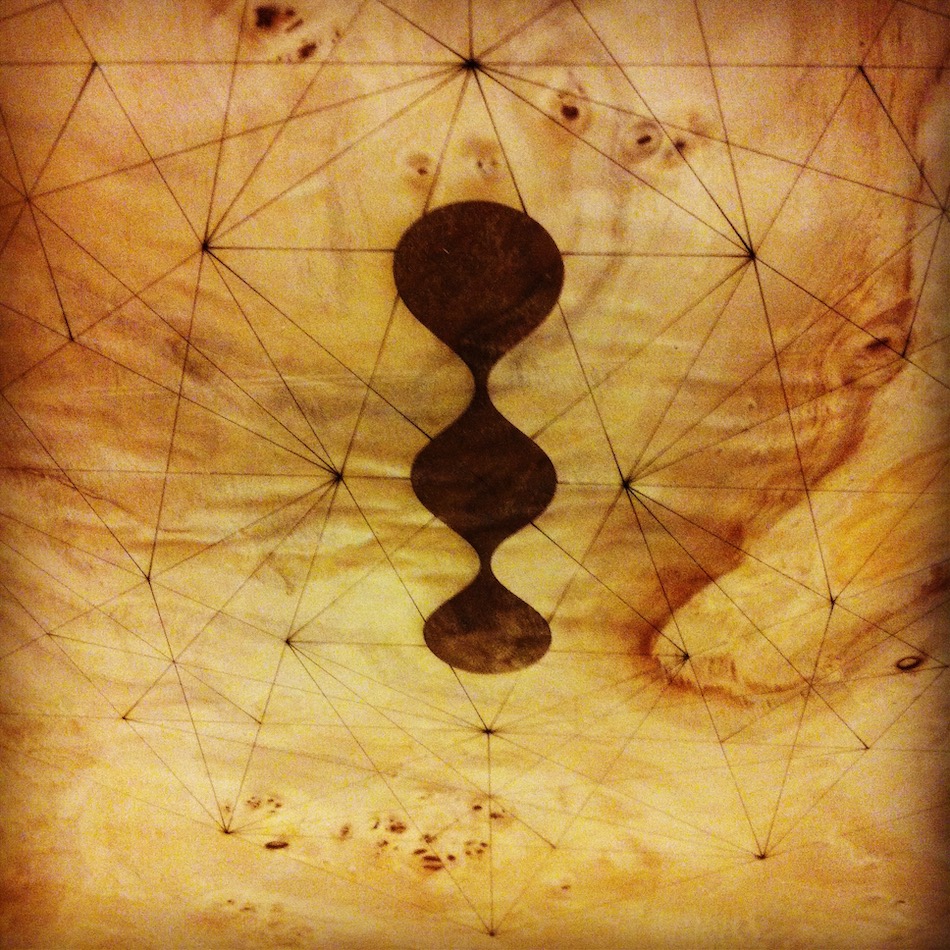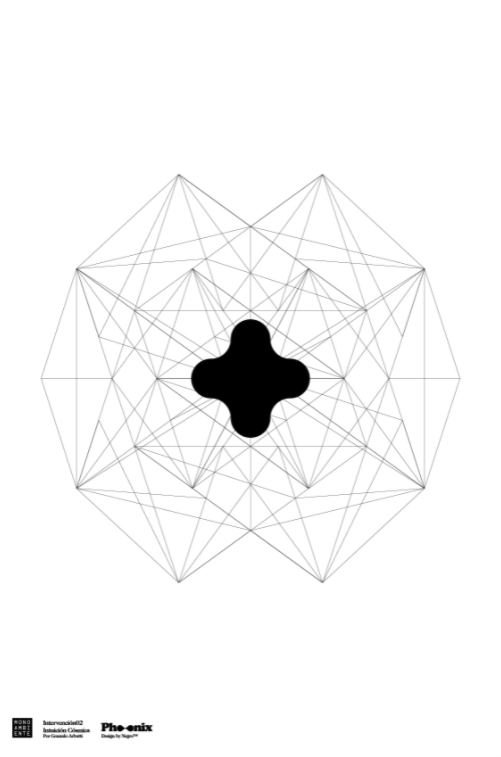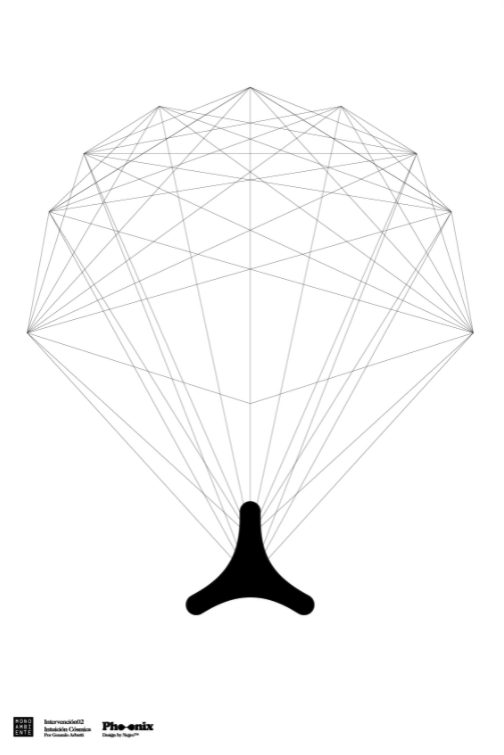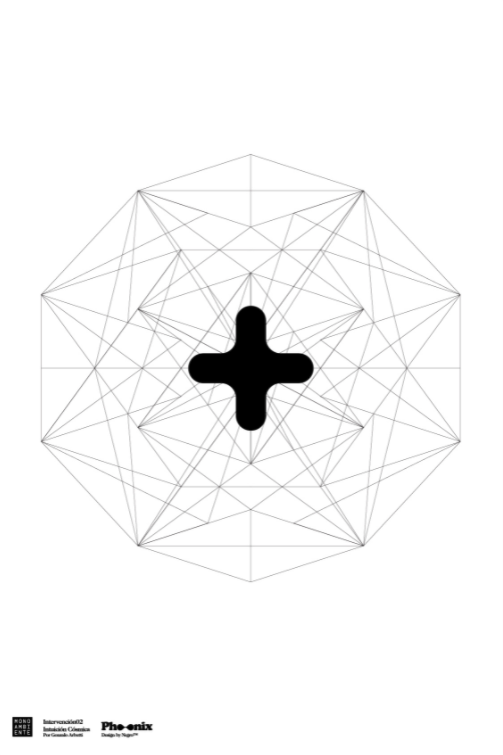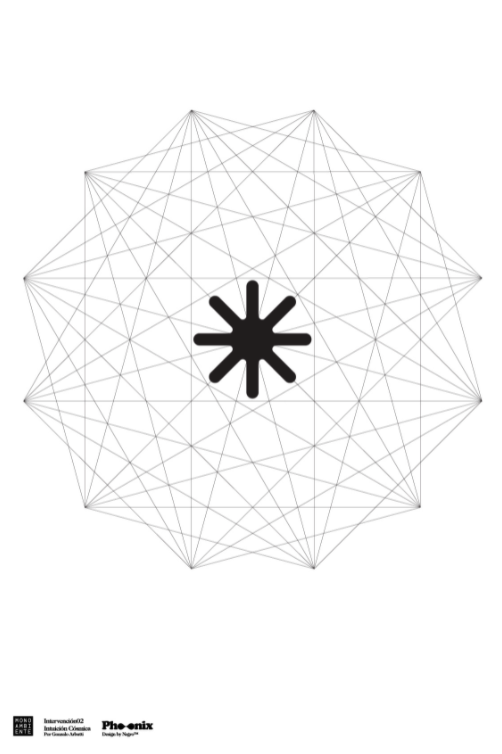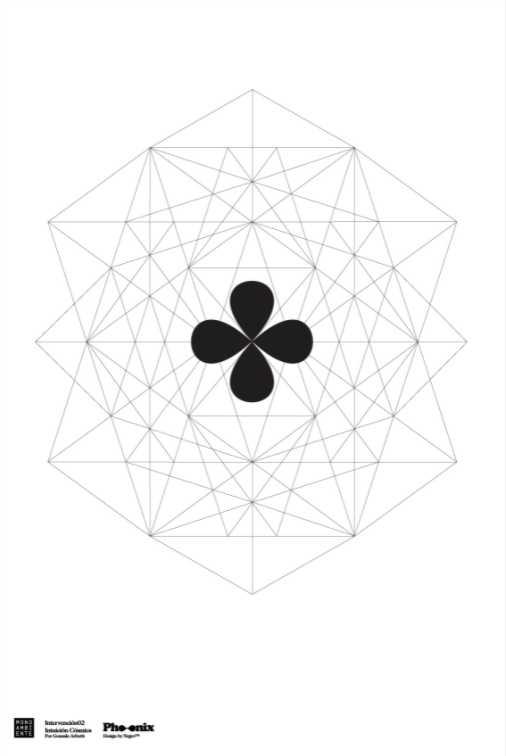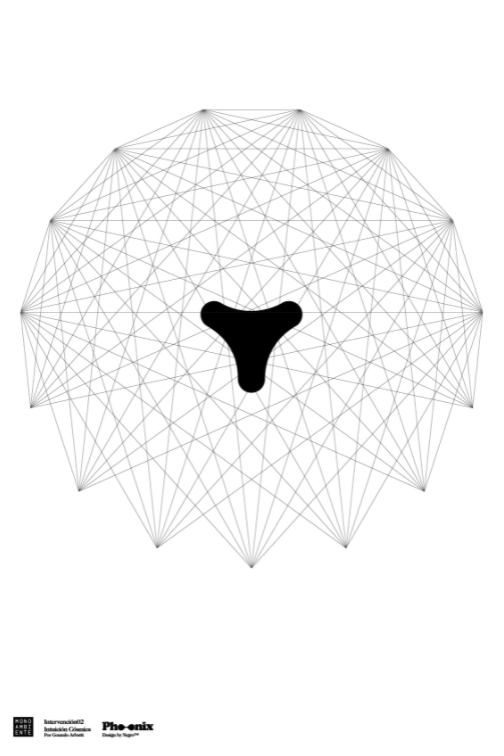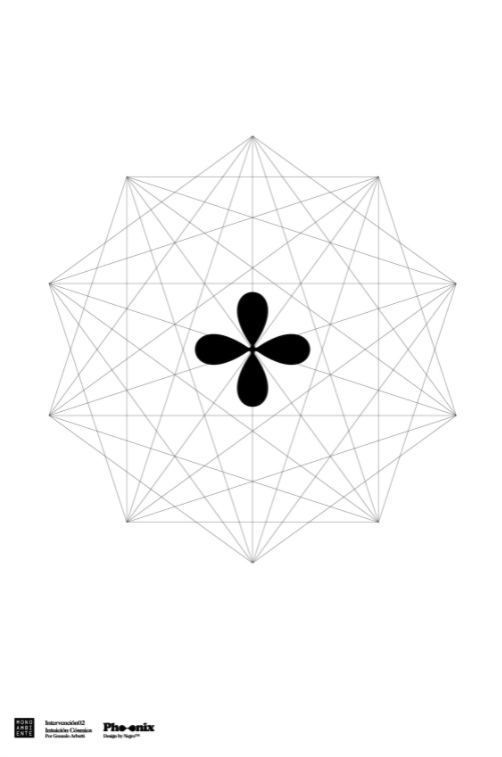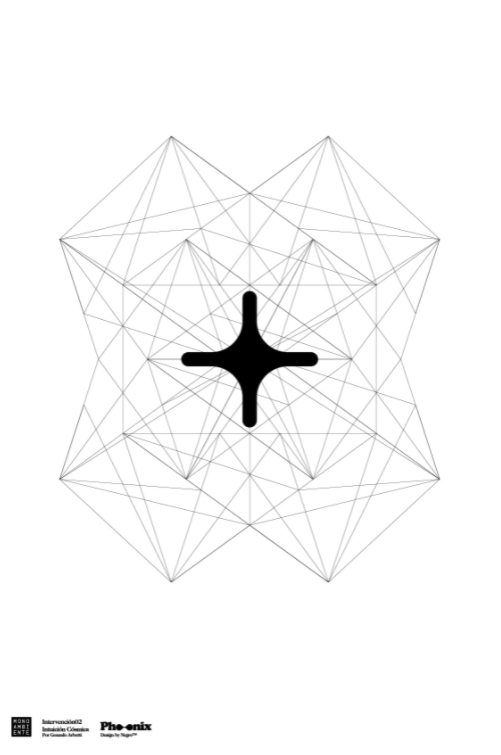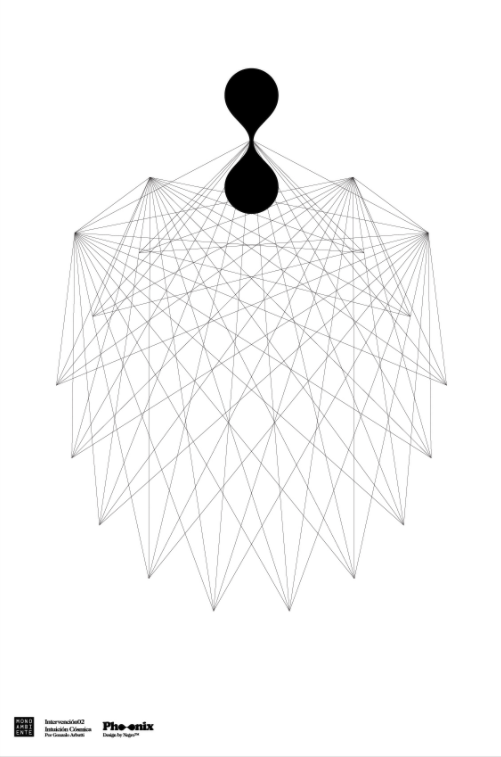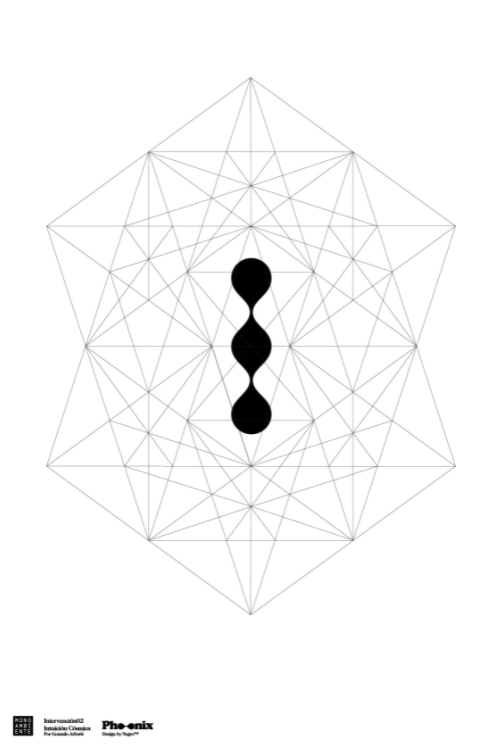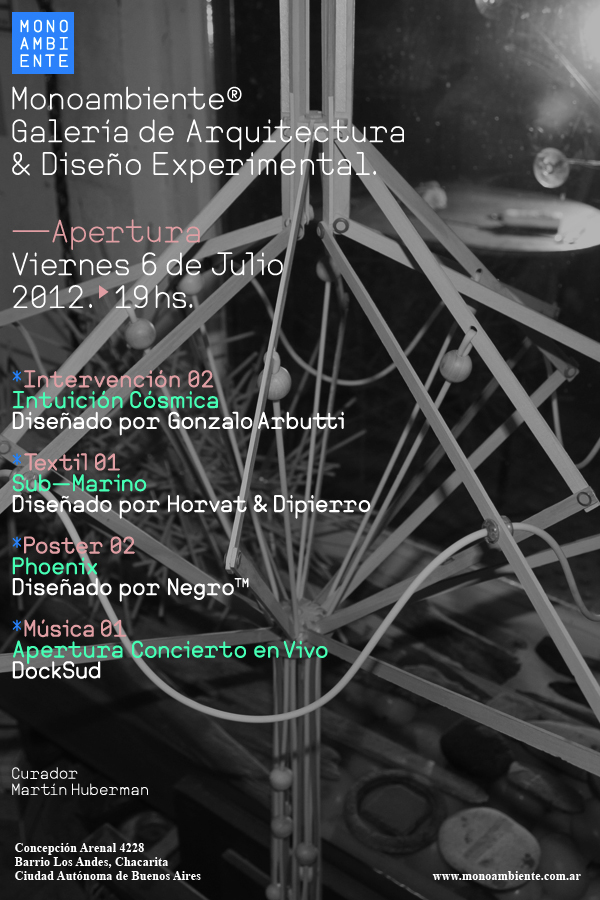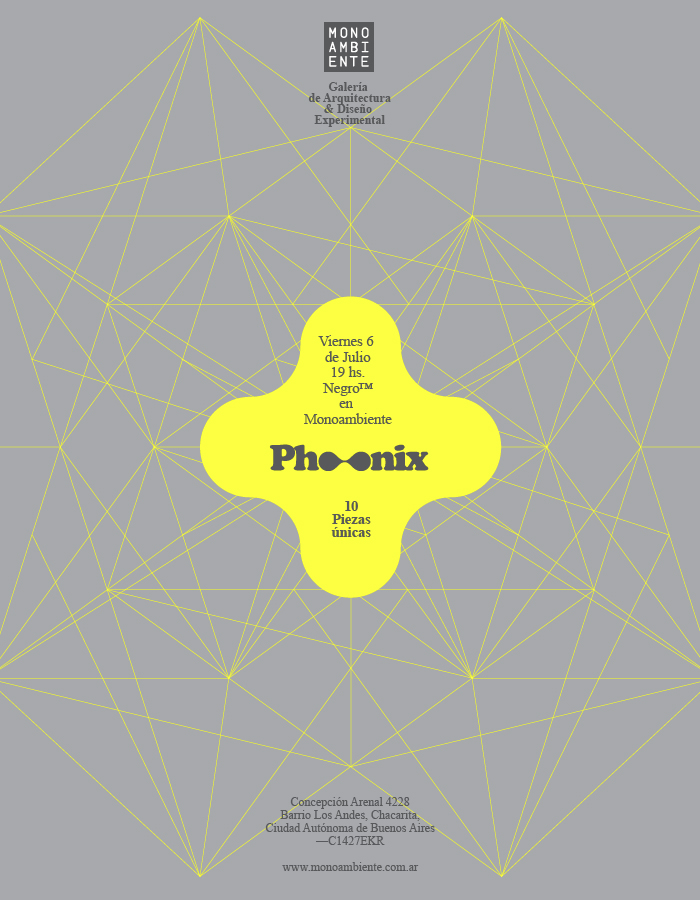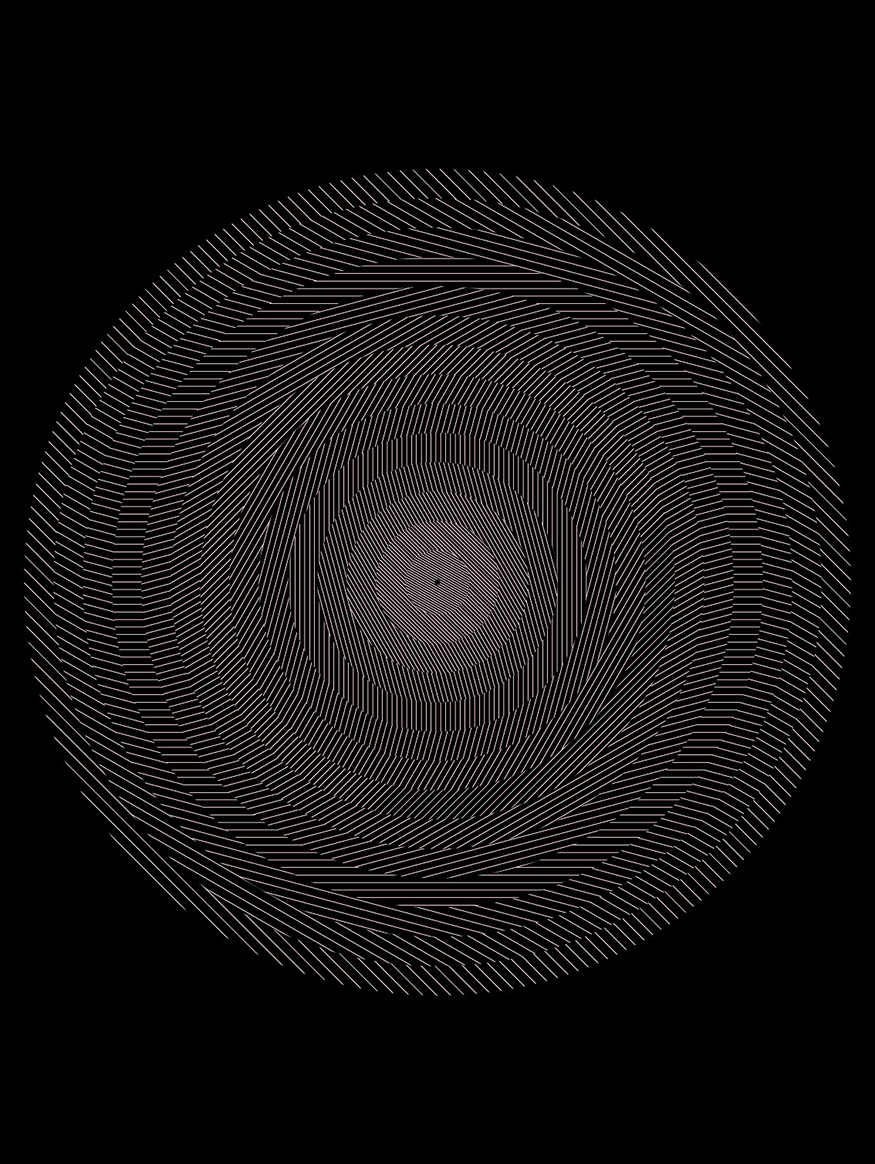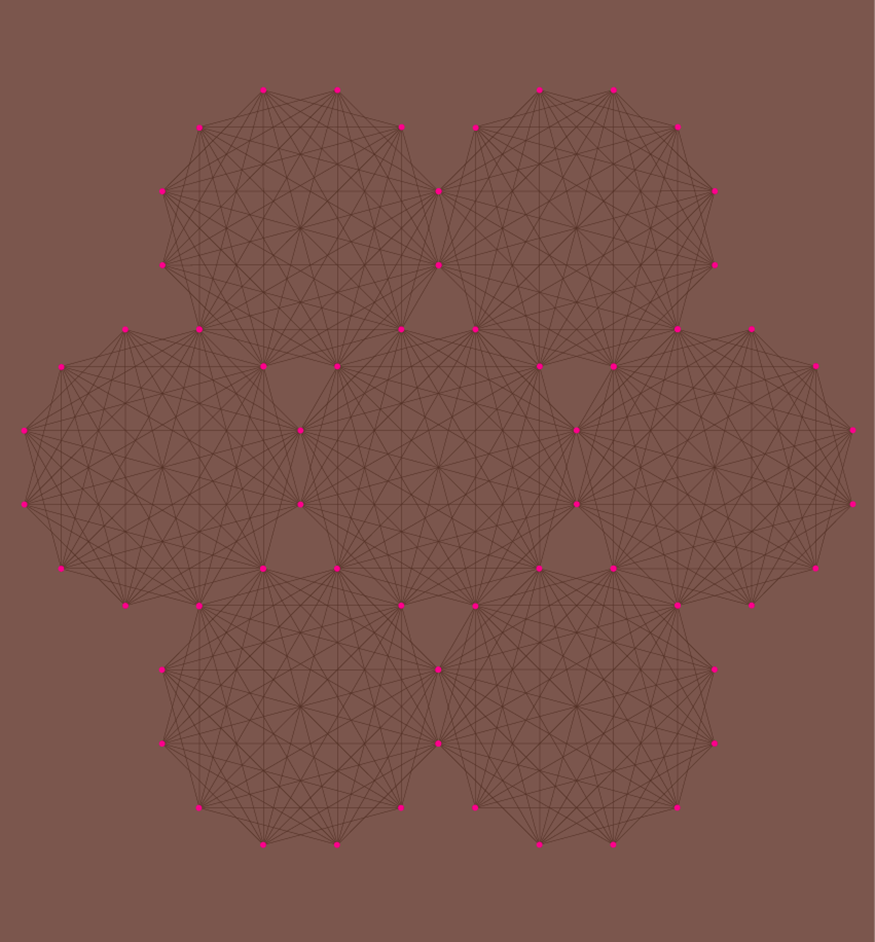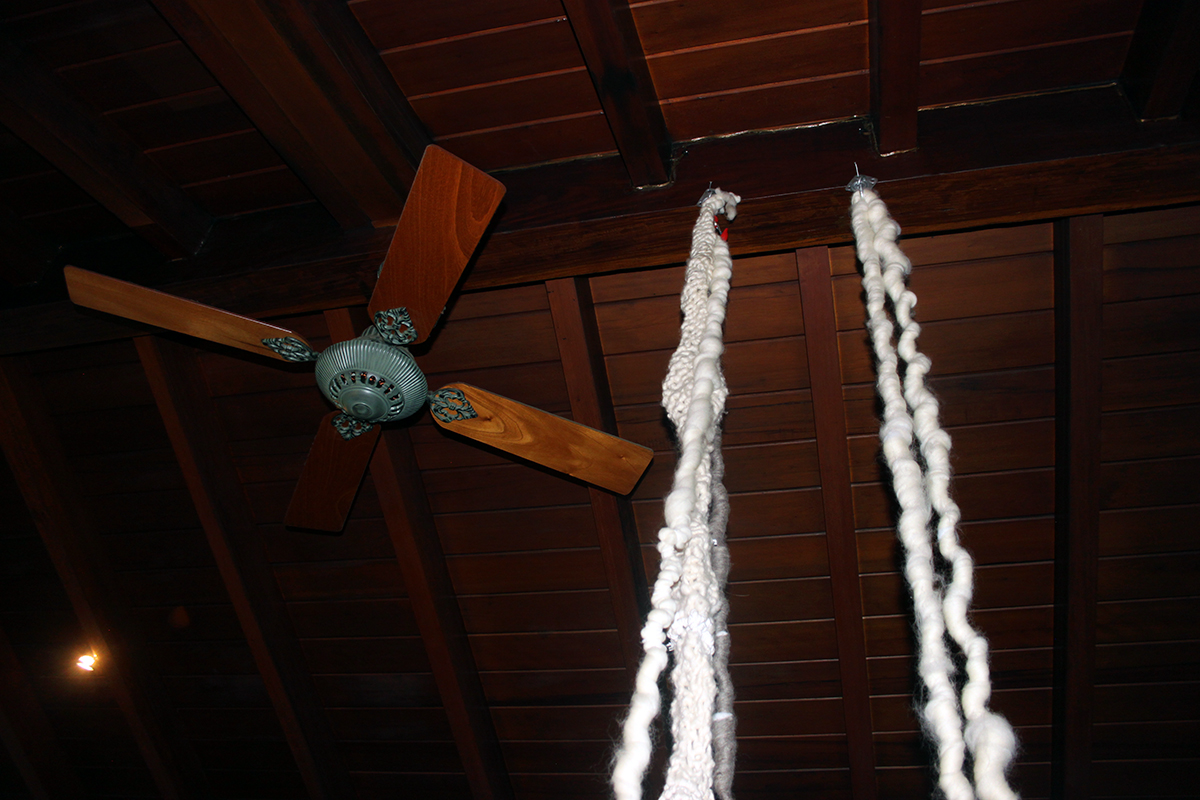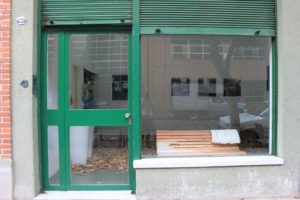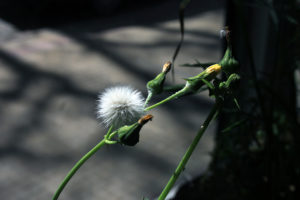Muestra 2
Intuición Cósmica [Cosmic Intuition] by Gonzalo Arbutti ● Sub-Marino [Sub- Marine] by Gabriela Horvat & Paula Dipierro
06/07/2012 - 06/09/2012
Never again
Curatorial text by Martin Huberman
“Of all delectable islands, Neverland is the snuggest and most compact, not large and sprawly, you know, with tedious distances between one adventure and another but nicely crammed.” This is how J.M. Barrie introduces the island where the adventures of Peter Pan and the Lost Boys take place. It is a fitting description as well of Gonzalo Arbutti’s studio, a microcosm where he develops his morphological adventures, a minute space that holds a vast experimental universe full of small and simple, yet lovely, tentative compositions that give shape to a rich constellation of materials, forms, and colors.
Monoambiente asked Gonzalo Arbutti to participate in its series of interventions, challenging him to move beyond that island crammed with “lost objects” and grow, like Peter Pan, in order to occupy the gallery’s space and, in so doing, enrich his own formal language by tackling basic ideas like scale and volume.
In Gonzalo Arbutti’s words:
“The basic idea is the assemblage of different elements, the way they meet and interact to form a unit.”
“It is not only a question of sensibility, but also of aspirations and inspirations, of cosmic intuition.”
* J.M. Barrie, Peter Pan, 1901
Gonzalo Arbutti bla bla [blah blah]
Gabriela Horvat’s work ensues over the body as it combines age-old techniques and pure and local materials. Her work in jewelry upholds the natural quality of the body and underscores curves in organisms made in silk, agave fiber, and rustic wool. The mother-daughter duo—Horvat is the daughter and Dipierro the mother—combines two generations of textile knowledge to move beyond the body as support in an attempt to render space visible and, mostly, tactile. This cross-generational dialogue gives rise to new textured environments that can be caressed, material spaces like the one “behind the curtain” that, as children, we discovered while playing hide-and-seek. In their words, “to build, we make use of simple, clear, basic—even primitive—modalities. Our construction is based on the ideas of continuity and gradualness, repetition and variation, the everlasting and the beautiful. We explore childhood memories tangled up in fabrics, undoing balls of wool, building spaces.”

